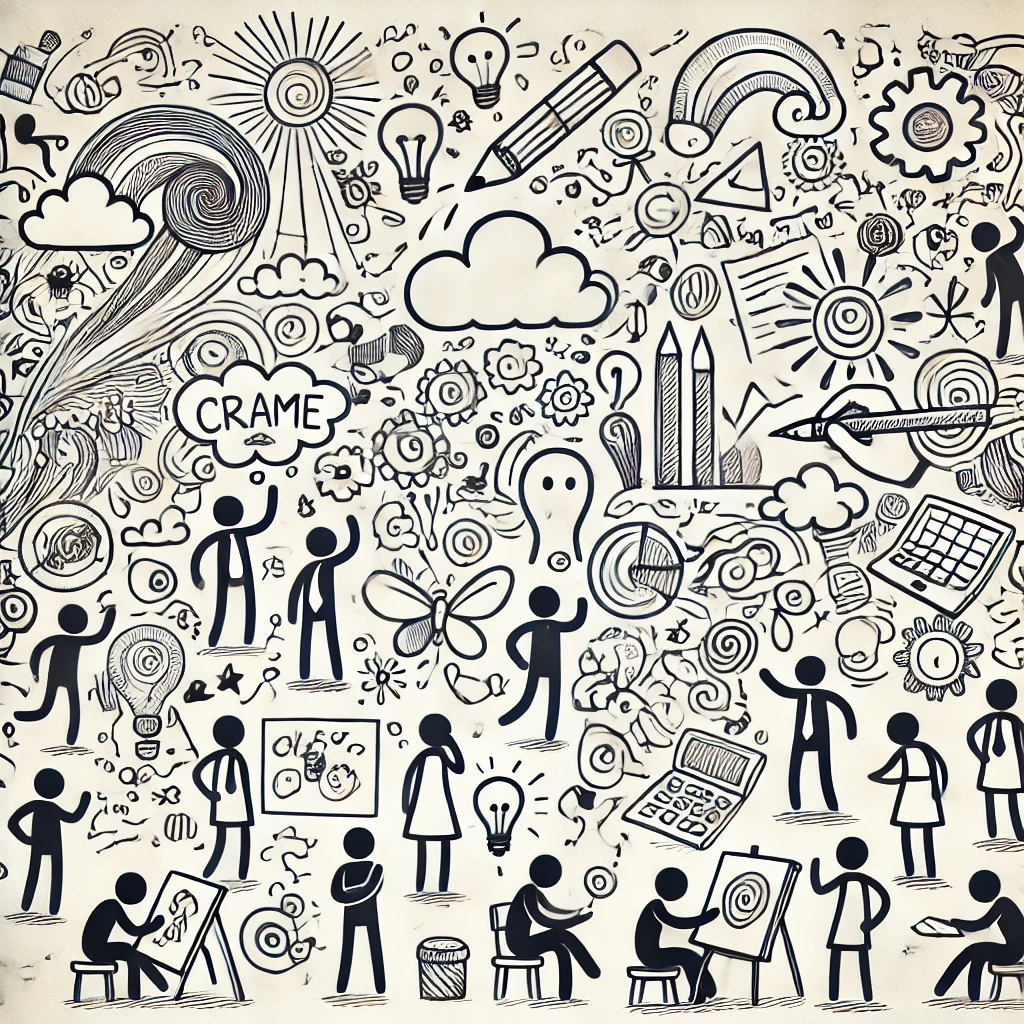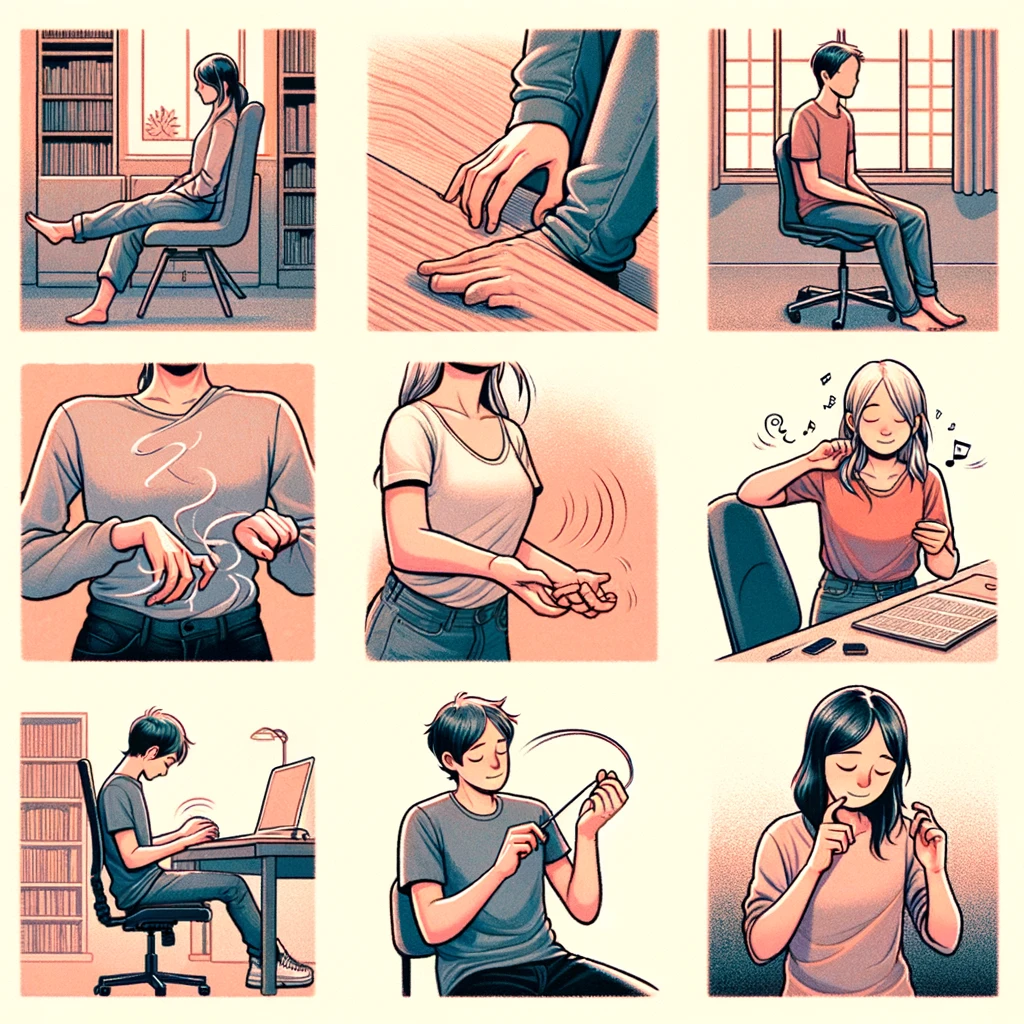ADHD and Doodling
ADHD and Doodling: More Than Just Idle Scribbles

Traditional learning methods can be challenging for those with ADHD. Yet simple doodling can significantly improve focus, memory, and cognitive engagement. Let’s explore how doodling can be a game-changer for people with ADHD. Doodling is often seen as a distraction, but for individuals with ADHD, it can enhance cognitive function. Far from being a harmful habit, doodling can boost focus, memory retention, creativity, and emotional regulation.
Cognitive Benefits of ADHD and Doodling
🔵 Enhanced Focus: Doodling helps maintain attention during long tasks, reducing the tendency to mentally drift away.
🔵 Memory Retention: Doodling strengthens memory recall by pairing information with visual elements.
🔵 Creative Processing: Doodling stimulates creative thinking, aiding problem-solving and understanding.
🔵 Emotional Regulation: The rhythmic motion of doodling can calm the mind,acting as stimming, reducing anxiety and helping regulate emotions.
🔵 Memory Retention: Doodling strengthens memory recall by pairing information with visual elements.
🔵 Creative Processing: Doodling stimulates creative thinking, aiding problem-solving and understanding.
🔵 Emotional Regulation: The rhythmic motion of doodling can calm the mind,acting as stimming, reducing anxiety and helping regulate emotions.
 Integrating ADHD and Doodling into Daily Life
Integrating ADHD and Doodling into Daily Life
🟢 During Lectures or Meetings: Doodle key concepts or patterns to anchor attention and retain information.
🟢 While Studying: Break down complex information into simple visual chunks to improve understanding.
🟢 In Conversations: Use doodling as a mental anchor during long or emotionally charged discussions.
Sketchnoting: Structured Doodling for Deeper Understanding
Sketchnoting combines words, images, and layouts into visual notes, making recalling and understanding information easier.
Advantages of Sketchnoting for ADHD
🔴 Active Engagement: Sketchnoting requires active listening and translating ideas into visuals, keeping focus sharp.
🔴 Visual Memory: Combining images and text creates strong memory traces, aiding recall.
🔴 Improved Organization: Visual layouts and connectors in sketch notes help organize information effectively.
Research Supporting ADHD and Doodling
🟣 Doodling and Memory Recall (Andrade, 2010): A study found that participants who doodled while listening to a monotonous message remembered 29% more information than those who didn’t. This suggests that doodling can help those with ADHD retain more details during lectures or meetings.
🟣 Handwritten Notes and Better Retention (Mueller & Oppenheimer, 2014): Research showed that students who took notes by hand (instead of typing) retained more information. This supports sketching for ADHD as it involves writing and doodling, making it an effective method for memory retention.
🟣 Drawing and Memory Enhancement (Wammes, Meade, & Fernandes, 2016): A study demonstrated that drawing words instead of just writing them can improve memory recall. This finding highlights how integrating doodling into note-taking can particularly benefit ADHDers.
Conclusion
Doodling isn’t just an idle activity—it’s a powerful tool for enhancing focus, memory, and learning, especially for those with ADHD. Whether in a lecture, study session or meeting, embrace doodling and sketching as your key to better comprehension and engagement.
Doodling isn’t just an idle activity—it’s a powerful tool for enhancing focus, memory, and learning, especially for those with ADHD. Whether in a lecture, study session or meeting, embrace doodling and sketching as your key to better comprehension and engagement.
References
Andrade, J. (2010). What does doodling do? Applied Cognitive Psychology, 24(1), 100-106.
Mueller, P. A., & Oppenheimer, D. M. (2014). The pen is mightier than the keyboard: Advantages of longhand over laptop note-taking. Psychological Science, 25(6), 1159-1168.
Wammes, J. D., Meade, M. E., & Fernandes, M. A. (2016). The drawing effect: Evidence for reliable and robust memory benefits in free recall. The Quarterly Journal of Experimental Psychology, 69(9), 1752-1776.
Andrade, J. (2010). What does doodling do? Applied Cognitive Psychology, 24(1), 100-106.
Mueller, P. A., & Oppenheimer, D. M. (2014). The pen is mightier than the keyboard: Advantages of longhand over laptop note-taking. Psychological Science, 25(6), 1159-1168.
Wammes, J. D., Meade, M. E., & Fernandes, M. A. (2016). The drawing effect: Evidence for reliable and robust memory benefits in free recall. The Quarterly Journal of Experimental Psychology, 69(9), 1752-1776.






